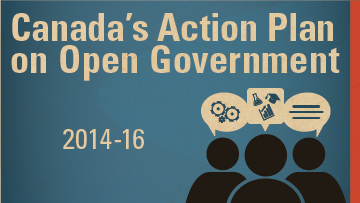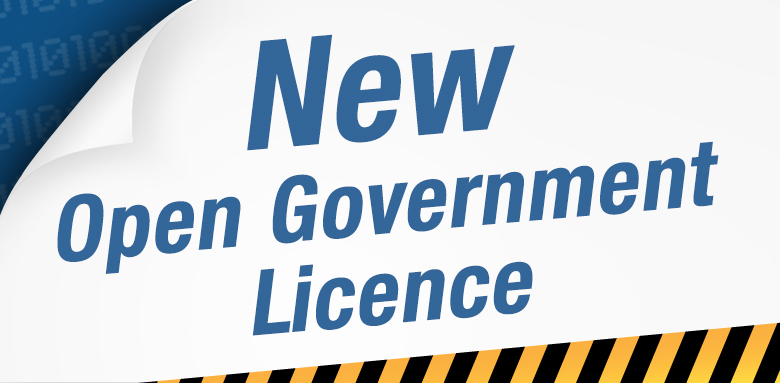
Canada recently completed their public consultation on Open Government (Photo source).
By Drew Bush
Introduction
For the savvy traveller headed over Canada’s border this holiday season, Canada’s Action Plan on Open Government 2.0 holds promise. A visit to the site in December 2014 yielded a multi-media list of steps to follow when travelling abroad and even an iOS “Travel Smart” application.
Drafted after a June 2013 G8 Summit, Canada’s plan results from agreements it made when it signed on to the summit’s Open Data Charter that lays the foundation for usage of open data to promote best government practice.
As a result, Canadians can now get online help with more than just travel. Ever wanted to know how much tax money you spend on government contracts? Or need information on the fuel consumption of a car you might buy?
The goal of the 65 nations committed to these plans is to increase government transparency and accountability, encourage citizen engagement, and stimulate innovation and economic opportunities.
History
Making this type of data more freely available fits with a long tradition in Canada. When the country began participating in the Open Government Partnership (OGP) in September 2011, it committed to making open data (or machine readable, freely used, re-used and redistributed data) open to anyone able to attribute and share it.
Applications of Web 2.0 technologies and social media allow for these types of interactions online with information, datasets and records. In fact, many modern computer programs incorporate Application Programming Interfaces (or APIs) to gain access to datasets for users.
The Open Data Charter recognizes the central role open data plays in improving governance and stimulating innovation in data-driven products and services. It endorses the principle of open by default, an idea also supported by U.S. President Barack Obama’s 2013 Executive Order on open data.
The drafting of the Charter and Obama’s order have elicited praise but also criticism. As Rufus Pollock, Founder of the Open Knowledge Foundation, wrote on his foundation’s blog, “there is still much for the G8, and other countries, to do.” In particular, the early results from an Open Data Census in July 2013 show that G8 countries have a long way to go in opening up essential data.
User Generated Input
Making data and information more available to Canadians isn’t the only goal of the plan. Open government is increasingly becoming a positive force for unity and international cooperation, according to Canada’s President of the Treasury Board, Tony Clement, in his statement “About Open Government”. He claims that open data makes government “more open, accessible, and responsive” by harnessing the “collective ingenuity, drive, and imagination of its people.”
In Canada, this means finding a way for citizens to engage in a two-way dialogue and even contribute datasets. In 2014, the Canadian Open Data Experience appathon again brought together government, industry, academia, and the public to mash up, reuse and remix federal government data. Events like these and communities the plan encourages around interest areas like maps, labour and law help encourage the development of useful, effective applications that use government data.
Short History of Open Government in Canada
- The Open Government Partnership formally launched on September 20, 2011 when eight founding governments (Brazil, Indonesia, Mexico, Norway, the Philippines, South Africa, the United Kingdom and the United States) endorsed the Open Government Declaration, and announced their country action plans. Canada joined the partnership later that year.
- On March 18, 2011, the Government of Canada announced its commitment to an open government initiative that focuses on three areas: 1. Making information such as records and activity more easily accessible; 2. Making raw data available in machine-readable formats to citizens, governments, and non-profit/private sector organizations; 3) Giving citizens an opportunity for dialogue on federal policies.
- In 2011 the Government of Canada launched an Open Data Portal – data.gc.ca – which now has more than 272,000 datasets from 20 departments and which has already resulted in over 100,000 dataset downloads since its launch.
- All government departments began publishing summaries of completed Access to Information (ATI) requests 2012 monthly on their Web sites.
- In 2012, the Government of Canada issued its enhanced Values and Ethics Code of conduct for all public officials.
- A 2013 Government of Canada Social Sciences and Humanities Research Council (SSHRC) partnership grant asks ‘How the Geospatial Web 2.0 is Reshaping Government-Citizen Interactions.’ GeoThink now includes 13 team members and 36 collaborators and partners.
If you have thoughts or questions about the article, get in touch with Drew Bush, Geothink’s digital journalist, at drew.bush@mail.mcgill.ca.
